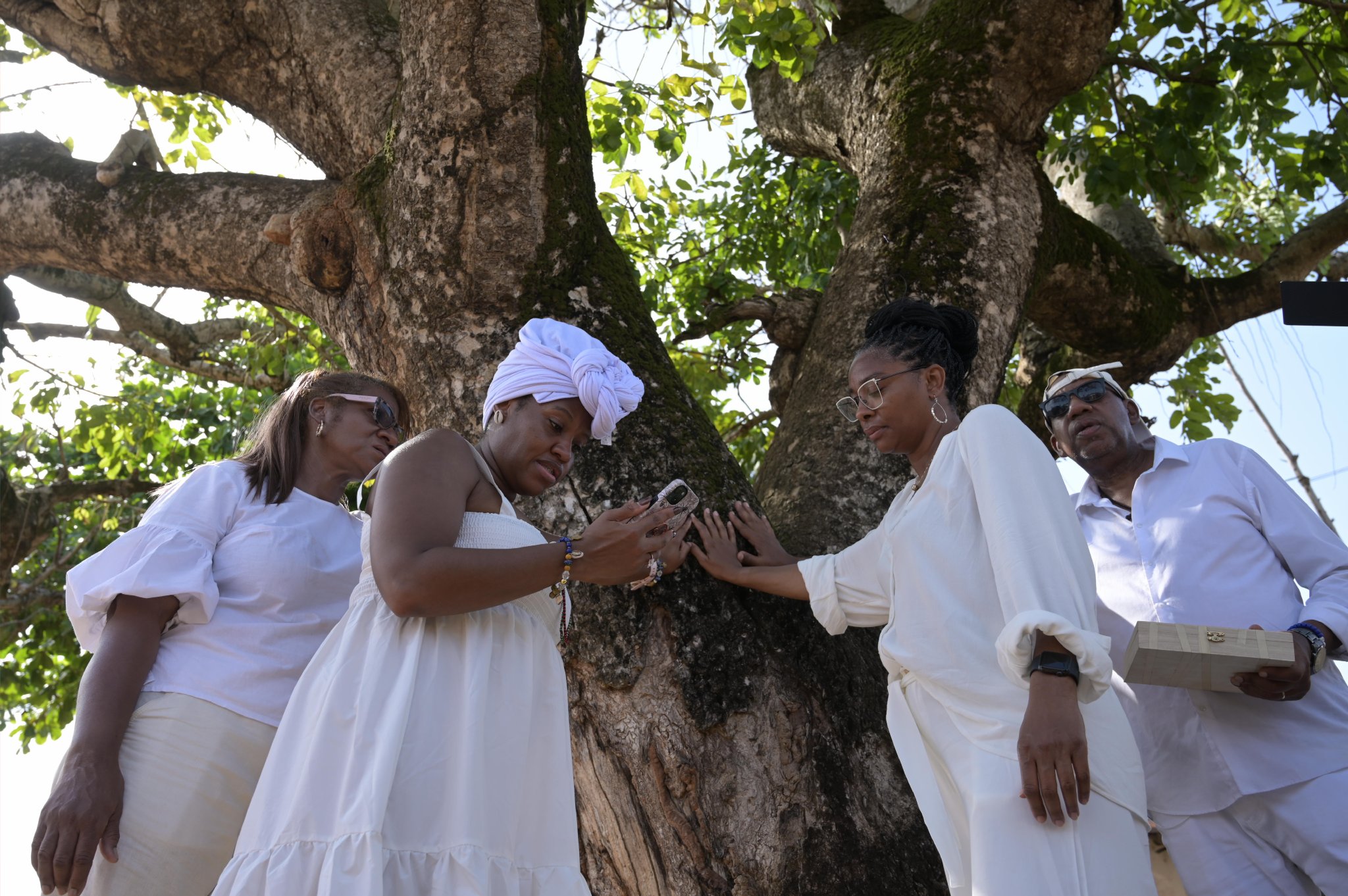National Geographic recently premiered “Clotilda: The Return Home,” a deeply moving one-hour special airing on Disney+.
This poignant documentary reveals the untold story of the last American survivors of the Clotilda ship, Cudjo “Kossola” Lewis and Gumpa Lee, and commemorates their extraordinary journey in honor of Juneteenth.
Led by National Geographic Explorer Tara Roberts, the special features descendants Altevese, Garry, Cassandra, and Delisha, who trace their ancestors’ steps from the shores of West Africa to the heart of America.
This journey, rich with remembrance and reconciliation, offers a compelling narrative of resilience, hope, and the unyielding spirit of a community forged in defiance of oppression.
In an exclusive interview with ADW, Tara Roberts reflected on the inspirations that led her to this remarkable journey. “I have spent the last six years following, diving with, and telling stories with a group of Black scuba divers who search for slave shipwrecks,” Roberts said.
She added: “The ship was found in 2019. It has been amazing to watch the journey of the ship come into the light again and to meet descendants along the way. When I met Altevese, her Uncle Gary, her cousins Cassandra and Alicia, and understood their connection to their ancestors, I was completely hooked and wanted to be supportive in whatever way I could.”
Roberts’ dedication to bringing empathy, nuance, and complexity to these stories is evident throughout the entire documentary.
For Altevese Rosario, a descendant of Cudjo “Kossola” Lewis, this journey is profoundly personal. However, she didn’t realize its monumental impact until adulthood. “It is a source of pride and significance. My grandmother, Mary, Kossola’s great-granddaughter, was an adolescent when he passed away. She sat at his feet and heard firsthand accounts of his life,” Rosario continues, “I sat at her feet in the very same way, doing the same thing. So for me as a young person I was like, okay, this is cool, not knowing that really no one else has this history and has this connection.”
The documentary sheds light on the broader context of the transatlantic slave trade, emphasizing the staggering scale of human suffering.
Roberts noted, “There were approximately 12,000 ships that brought Africans to the Americas. They Estimate that approximately 1.8 million people died during the route. We’re not talking about the number of people who died on the march to the boats or the number of people who died once they arrived and were enslaved, but just in the ocean. So there is acknowledging and reckoning work that needs to be done,” Roberts continues, ” This is what I love about the Clotilda, we get to honor our ancestors and we get to honor a specific ancestor.”
The journey for the descendants to reconnect to their ancestral roots was filled with emotional and cultural revelations. Rosario recognized a significant discovery about the narrative differences between African and African American histories. “The narrative that Africans on the continent have about European slavery is very different from what actually happened. We were talking with one of the photographers that came along the journey with us, and she and I were talking about slavery. She said that she never learned about that in school and how it wasn’t something that was discussed. So her idea of it was limited and it was rooted in indentured servitude as opposed to chattel slavery. That really just blew my mind,” Rosario said.
As “Clotilda: The Return Home” airs near Juneteenth, it underscores the importance of this historical moment for African Americans. Rosario described the project’s connection to Juneteenth as one of healing. “We celebrate Juneteenth because we were forgotten because we were not considered. That’s how Juneteenth came to be. Someone had to come enforce a law that was already in existence. This film represents healing in us coming full circle in a way. Being freed from slavery in this country and now my ancestors’ spirit being freed to return home.”
For Roberts, who cannot trace her roots past her great-great-grandfather born enslaved in North Carolina, the journey was equally profound. “This journey encouraged me to think of it as my journey home, even though I may never trace back to a specific village in Africa,” Roberts said. “When we got to the village, I counted the dancing, singing, and welcoming of the descendants home, and I felt like they were welcoming me as well.”
“Clotilda: The Return Home” isn’t just an ordinary documentary, yet a testament to the resilience of a community and the enduring legacy of its ancestors.
Rosario’s emotional reflections capture the essence of this journey: “Touching the land, feeling the presence of Cudjo, of my grandmother, of my great grandmother, and experiencing their joy in coming back home was overwhelming. It touched me at my core in a place I didn’t even know existed.”
As viewers tune in starting on June 17th, they will witness a story of reconciliation, healing, and the indomitable spirit of a community that continues to honor its past while forging a path for future generations.

